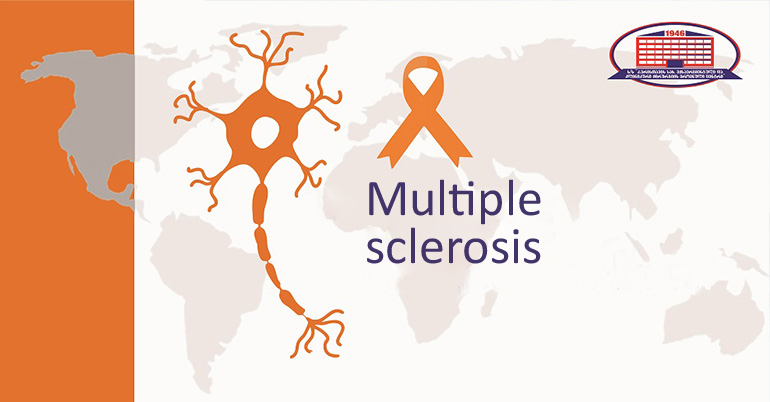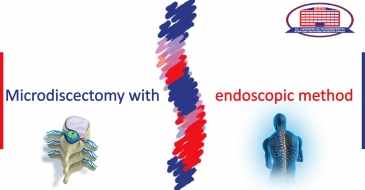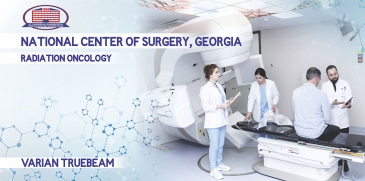
Multiple sclerosis is a chronic, progressive neurological disease.
The first symptoms of the disease predominantly appear in the age group of 20 to 40, and usually, females are more likely to get a disease.
Clinical symptoms are diverse and depend on the damaged area. The most frequent ones are the following:
- Sensitivity, mobility and speech impairment.
- Dizziness;
- Sexual dysfunction;
- Constipation;
- Nausea, vomiting. Multiple sclerosis is often confused with intoxication, because of these two symptoms.
- Strength deterioration;
- Sudden vision impairment and so on.
As National Center of Surgery’s neurologist Nika Kvernadze states in an interview with us, various risk-factors contribute to disease development, albeit the exact cause of multiple sclerosis is yet unknown for scientists.
Mr. Kvernadze states – “Out of many causes of the disease, we may point out several ones, for example, genetic predisposition, frequent bacterial and viral diseases, and toxic substance poisoning. The main goal of multiple sclerosis treatment is to reduce the activity, progress of the disease"
It should be noted that the diagnosis of multiple sclerosis is not that easy and there are relevant criteria for diagnosis.
In National Center of Surgery, multiple sclerosis management can be administered in emergency situations, as well as in outpatient conditions.
In National Center of Surgery’s neurology department, there are following methods of multiple sclerosis diagnostics:
- Consultation with neurologist;
- Brain and spinal marrow’s magnetic-resonance tomography with the contract. Clinic’s ultramodern magnetic-resonance tomography machine, Toshiba Vantage Elan is selected for the examination.
- Lumbar puncture (fluid examination of brains and spinal marrow)
On May 30 the world marks the International Multiple Sclerosis day.
National Center of Surgery address: Tbilisi, Dighomi, Chachava N5.
You may contact National Center of Surgery’s call center at 577 119 119 or 02 25 25.
Wish you health!









